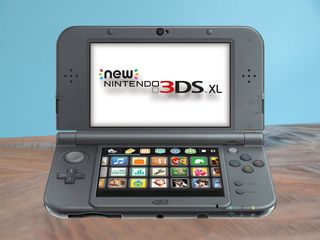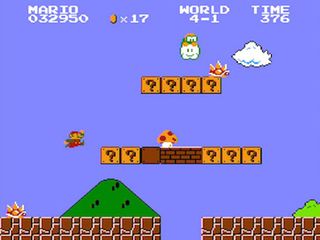Nintendo 3DS and Wii U eShop shutdown erases a chunk of gaming history
The 3DS and Wii U eShop closures do not bode well for the future of game preservation

In case you haven’t already read about it, the Nintendo 3DS and Wii U eShops are not long for this world. You have until May 23, 2022 to add funds from a credit card; you have until August 29, 2022 to redeem gift cards; you have until March 2023 to redeem any codes. After that, if you want a 3DS or Wii U game, you’d better be able to find a physical copy. Here are 10 Wii U games to buy before Nintendo shuts down the eShop.
From a practical standpoint, this may not seem like the most earthshaking issue. The Wii U is 10 years old; the 3DS is 11 years old. You can’t buy either system new anymore, and neither system has had a major game release in years. Nintendo has put all of its apples in the Switch basket, and has even ported over a lot of underrated Wii U fare, such as Bayonetta 2 and Hyrule Warriors.
But even a casual reading of the official discontinuation notice reveals a troubling outlook at Nintendo. On a Nintendo Support page entitled “Wii U & Nintendo 3DS eShop Discontinuation,” the Q&A section had a revealing exchange:
“Once it is no longer possible to purchase software in Nintendo eShop on Wii U and the Nintendo 3DS family of systems, many classic games for past platforms will cease to be available for purchase anywhere,” it read.
“Will you make classic games available to own some other way? If not, then why?" posed another query. "Doesn’t Nintendo have an obligation to preserve its classic games by continually making them available for purchase?”
Nintendo replied to this hypothetical question with a non-answer:
“Across our Nintendo Switch Online membership plans, over 130 classic games are currently available in growing libraries for various legacy systems,” went the response. “We think this is an effective way to make classic content easily available to a broad range of players … We currently have no plans to offer classic content in other ways."
It is, perhaps, telling that Nintendo has since deleted the exchange, and replaced it with a much more anodyne Q&A.
Nintendo’s disregard — bordering on contempt — for its classic library is nothing new. In fact, the situation on the Switch is worse than it was on the Wii and Wii U, where at least players could purchase classic games to own, rather than relying on a mercurial subscription service. By making it somewhere between “difficult” and “impossible” to access its back catalog, Nintendo is, however unintentionally, harming the history of gaming — and its own posterity.
A lesson from the film industry

In order to understand one possible future for gaming, we need to look at a related industry: film. Without going into an entire lecture on the history of cinema, fictional movies date back to 1895, and achieved mainstream success in 1903. However, according to the Film Foundation, “half of American films made before 1950 and over 90% of films made before 1929 are lost forever.”
The first statistic is damning enough, but think about the second one carefully. The first 34 years of cinematic history — the foundational period of the entire medium — is essentially a black hole to modern viewers. To be fair, some excellent films survived, and many of the films that didn’t were probably not very good. But the quality isn’t the primary point. Even if we didn’t lose a single great film — and we almost certainly did — the dearth of material makes early film a nearly impossible subject for anyone outside of hardcore aficionados to study.
Movies are an incredibly influential part of modern pop culture. If we don’t have a frame of reference for how the medium evolved, we can’t fully appreciate the artistry that goes into making them. It also means that we lack an important frame of reference for our own appreciation of film. Just as you can’t understand the modern state of the world without studying history, you can’t fully grok an art form unless you know something about its origins. (This, among other reasons, is why you probably had to read The Iliad and The Epic of Gilgamesh in high school.)
Now, think about that time period once again: 1895 to 1929. That’s 34 years. The Nintendo Entertainment System debuted 39 years ago. Imagine if, suddenly, 90% of the games that came out during that time period vanished into thin air.
We would still have some of the all-time greats, of course. Super Mario Bros., Final Fantasy and Myst aren’t going anywhere, if only because there are so many copies in existence. But what about the minor works that inspired many of today’s best-loved games? Where would we be without Earthbound, or Captain America and the Avengers, or Herzog Zwei?
This isn’t simply a thought experiment. Cartridge makers did not design physical copies of games to last forever. Left to their own devices, video game cartridges could last about 50 years — maybe longer, maybe shorter, depending on storage conditions. In our lifetimes, a lot of old cartridges will cease to function. The question is, once that happens, how will we preserve games for the masses? And, more to the point, do game manufacturers even want to?
A disdain for history

When Nintendo pulls the plug on the 3DS and Wii U eShops, it won’t immediately erase every game sold there from existence. Most of them are available physically; some are available on other platforms; many are still downloaded onto individual 3DS and Wii U consoles. But over time, all of these numbers will dwindle. A handful of games will essentially disappear forever, just as they did when the Nintendo Wii Shop shut down. (RIP, Castlevania The Adventure ReBirth.)
Based on Nintendo’s now-deleted answer, the company doesn’t seem to care all that much what happens to its deprecated games — unless people try to play them through illicit means, that is. Nintendo has a storied history of shutting down emulation sites, even though it’s essentially impossible to play many of those games otherwise.
Nintendo’s argument about Switch Online classic games doesn’t hold much water, either. The company pointed out that you can currently play about 130 NES, SNES, N64 and Genesis games via the service. If you added up every game ever released for those systems, however, you would get something in the neighborhood of 3,500 titles. You can’t preserve gaming history by offering less than 4% of what’s out there, just as we can’t claim to have exhaustive knowledge of pre-1929 films with only 10% of them available.
Nintendo, however, is not alone in its casual disdain for game preservation. Jim Ryan, CEO of Sony Interactive Entertainment, famously wondered, “Why would anybody play this?” while looking over old PlayStation games. The PS5 is backwards compatible with PS4 games, but anything earlier than that is a hodgepodge of the PlayStation Now streaming service and haphazard remasters, such as the upcoming Chrono Cross: The Radical Dreamers Edition.
After nearly shutting down the PS3, PS Vita and PSP stores last year, Sony begrudgingly allowed them to remain open. The process of actually trying to buy a PS3 game, however, is excruciating. I don’t expect these digital storefronts to remain open forever, particularly now that Sony can point to the convoluted interface as a reason to do away with them.
Of the three major console manufacturers, only Microsoft has taken an active interest in backwards compatibility, and even that’s been pretty limited in execution. After one final round of Xbox 360 and original Xbox games in November 2021, Microsoft has essentially ended its backwards compatibility project.
A darker future

It’s probably not reasonable to expect every single piece of media to endure forever. The world is a chaotic place, and we’re constantly getting new movies, TV shows, books, music and video games. It’s inevitable that some older fare will simply get lost in the shuffle. But we can minimize that loss, if we’re proactive.
Nintendo is worth approximately $9.4 billion. I don’t know how much money it would cost to maintain a handful of 3DS and eShop servers, but I have to imagine that the company could probably eat the cost, if it really wanted to. Instead, we have to accept that some games are going to disappear, available only through retro collections or shady ROM sites (at least until Nintendo shuts those down, too).
This may not be a big deal for players who exhausted their 3DS and Wii U libraries years ago, and now want the latest and greatest Switch titles. But over the years, younger players will grow curious about what they missed — and historians of the medium will want to see why these two consoles resonated, or failed to resonate.
The history of cinema teaches us a chilling lesson about the ephemerality of pop culture. We can’t recreate the movies we lost. But we can learn from them, if we’re willing to invest in preserving the early years of a fascinating medium.
The bottom line is clear: neither Nintendo nor Sony nor Microsoft has made a sustained, comprehensive commitment to game preservation. And if the biggest players in the industry won’t protect the history of gaming, who will?
Sign up to get the BEST of Tom’s Guide direct to your inbox.
Upgrade your life with a daily dose of the biggest tech news, lifestyle hacks and our curated analysis. Be the first to know about cutting-edge gadgets and the hottest deals.
Marshall Honorof is a senior editor for Tom's Guide, overseeing the site's coverage of gaming hardware and software. He comes from a science writing background, having studied paleomammalogy, biological anthropology, and the history of science and technology. After hours, you can find him practicing taekwondo or doing deep dives on classic sci-fi.

